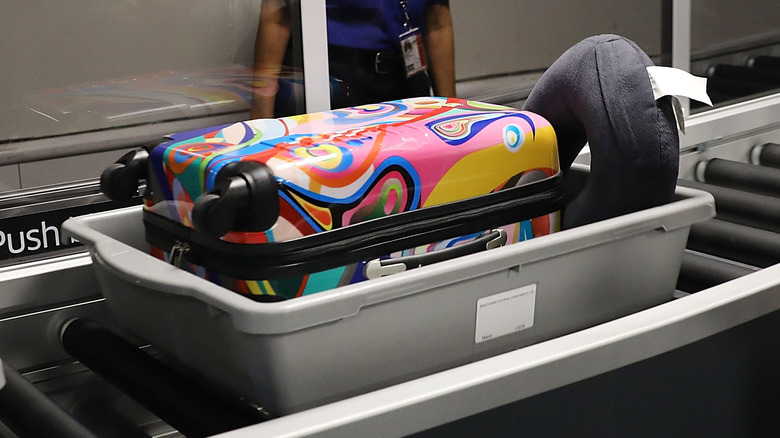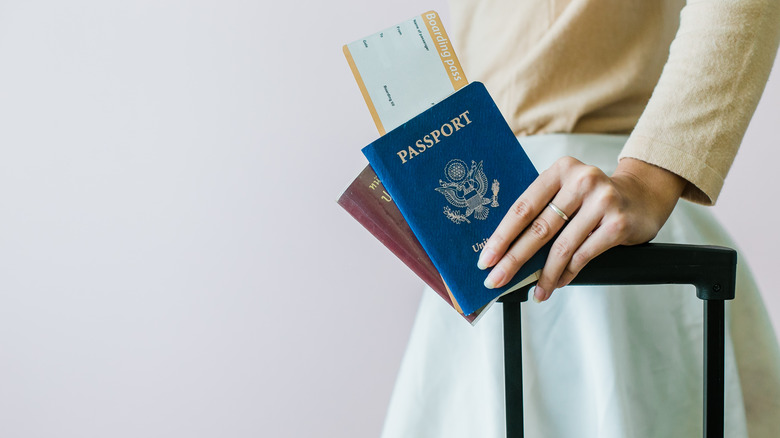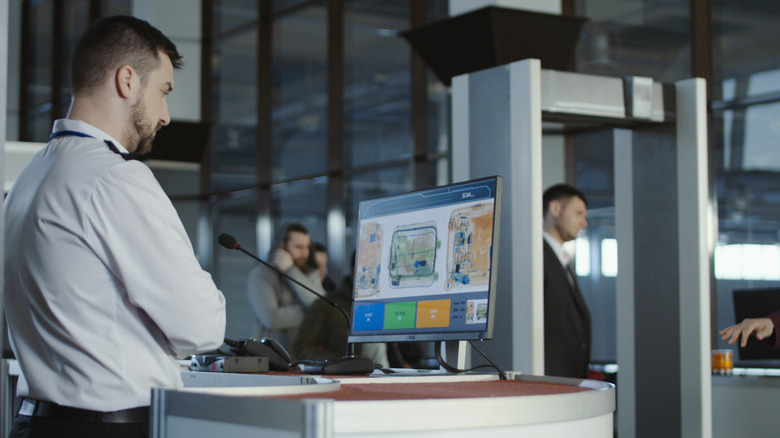Do Large Electronics Really Need Their Own Bin At Airport Security?
Airport security can be a pain, between taking off shoes and belts, pulling out liquids, and putting everything in bins. Large electronics are especially a hassle, since they require their own, separate bin. Is that really necessary?
The short answer is yes. Large electronics like laptops and game consoles are dense enough to block an X-ray machine from seeing what else is in your bag, according to Mental Floss. Even a knife might go undetected if hidden under a laptop (via Slate).
The other reason is that electronics can be used to hide other, illegal items. According to Mental Floss, agents for the government's Transportation Security Administration (TSA) have found everything from guns to grenades to marijuana hidden inside other items. Slate says airport security became more aware of this problem and more vigilant after the 1989 Pan Am 103 disaster, in which an explosive device hidden in a boombox destroyed the plane and killed 270 people. The terrorist attacks of 9/11, of course, caused huge changes in airport security as well.
What can I do to make it easier?
TSA recommends flyers take their large electronics out of their bags before reaching security to speed up the process (via Slate). However, if you have a checkpoint-friendly bag, you can leave your laptop inside it while going through security. These bags have separate compartments for laptops and are specially designed to make sure they aren't hidden by other items or other parts of the bag. Brands including Skooba, Case Logic, and Samsonite make checkpoint-friendly bags (via USA Today).
Travel and Leisure recommends packing strategically. If flyers pack large electronics in a separate, easy-to-reach compartment in their bag, it makes the security process faster. Similarly, they recommend keeping all liquids together in one bag, and checking beforehand to make sure they're a TSA-approved size. Last of all, keeping all travel documents (boarding pass, ID, passport) together in one pouch or easily-accessed pocket can make the process smoother and less stressful. If you aren't sure what you can and can't bring, TSA has a tool on their homepage to help you figure that out.
What about TSA PreCheck?
Travel and Leisure also highly recommends signing up for TSA PreCheck if you fly more than a couple of times per year. TSA PreCheck flyers usually wait five minutes or less to go through security. They don't have to remove belts, shoes, or light jackets, and large electronics and travel-size liquids can stay in their bag.
Signing up for TSA PreCheck involves filling out an application on TSA's website, then attending a 10-minute in-person meeting to be fingerprinted for an FBI screening. The background check for PreCheck also involves looking at no-fly lists and criminal records. People who have been convicted of certain felonies, listed on Your Mileage May Vary, won't qualify for PreCheck. People who are wanted for crimes are also ineligible, although sometimes ineligibility can be lifted after a certain number of years. If you're uncertain of your eligibility, you can call 866-289-9673 to ask.
The takeaway? If you don't want to have to deal with pulling out those large electronics, PreCheck may be the way to go.


